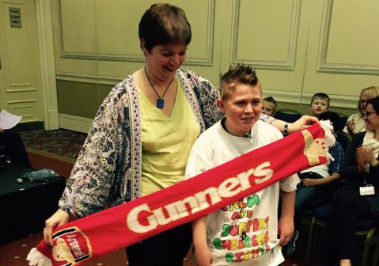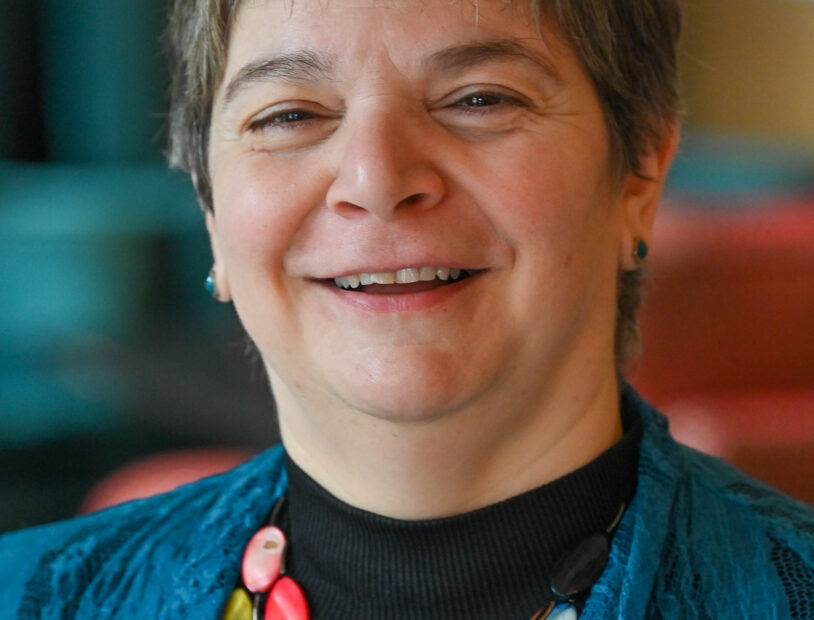
Getting down to business – tackling educational inequalities
I can’t believe that I have only done 2 months in this job, it has…
Commissioner's Blog
17 October 2016
Academic selection has been the subject of government announcements in Northern Ireland and Westminster. Minister Weir’s announcement that schools can now prepare children for the transfer test is a reaffirmation of his commitment to academic selection in Northern Ireland. While it is preferable that within a system of unregulated tests, all children who wish to take them are equally prepared to do so, despite their background or circumstances, it is extremely disappointing that the vision for education in Northern Ireland remains firmly fixed on the perpetuation of “academic segregation”.
Inequalities in education are one of my organisational priorities. Too many children are leaving school without the basic literacy and numeracy skills they need. It is estimated that around 4,000 children leave primary school unable to read and write to the expected standard, and this figure steadily increases to 2 in 5 i.e. 9,000 young people at GCSE level.
There are a range of statistics which highlight grave inequalities in educational attainment for specific groups of children and young people. Children who live in poverty, Newcomer children, Traveller and Roma children, boys, looked after children, children with disabilities and/or special educational needs, LGB and T children and young carers, all do less well in education to varying degrees, than their peers. The Northern Ireland Executive through its Programme for Government, has made a welcome commitment to ensuring that all children have the best start in life. A number of strategies, plans and policies are underway in attempts to address some of the inequalities suffered by particular groups of children. I welcome all work which aims to create a fairer education system, which is accessible and responsive to the needs of all our children and young people.
Statistics from the Department of Education tell us that currently in Northern Ireland, on average 66% of young people get 5 GCSEs grades A* to C, including English and Maths. Boys achieve slightly below average at 61.6%, and girls do better than average at 70.5%. There is very little difference with regard to religion alone, with Protestants, Catholics and children of other religions, all achieving approximately the Northern Ireland average. There is a marked variance between the achievement levels of children who are entitled to free school meals and those who are not. Free school meal entitlement is used as a proxy indicator for poverty. Just 41.3% of children who are entitled to free school meals achieve 5 GCSEs grades A* to C including English and Maths, compared to almost 74% of children who are not!
By far the biggest inequality of all is the difference between the achievement levels of children who attend Grammar schools and those who do not. 95.6% of children at Grammar schools achieve 5 GCSEs grades A* to C, including English and Maths, as opposed to 45.3% of children who do not. To put this in context, in 2014/15 based on Department of Education figures, we can estimate that over 50,000 young people in secondary schools will not achieve 5 GCSEs grade A* to C, including English and Maths. To be clear more than a third of all of our young people in post primary education do not achieve the set standard of attainment – a sobering statistic.
In making their announcements regarding grammar schools and academic selection, both Theresa May and Peter Weir respectively, citied social mobility as one of the primary reasons. Whilst I applaud the motivation, the evidence demonstrates the contrary. If the Grammar school system was contributing to social mobility, we would expect to see high numbers of children entitled to free schools meals in Grammar education. There are three times (37%) as many young people on free school meals in post primary ‘secondary’ schools than there are in grammar (12%). Very few children in Grammar schools in NI come from deprived areas, very few are poor and very few poorer children are becoming socially mobile as a result of their journey through our education system. Without systemic reform, this inequality looks set to continue.
Domestic and international children’s human rights standards are clear that all children should have access to an education which is child-centred, child-friendly and empowering. Education should go far beyond formal schooling and enable every child to develop his or her personalities, talents and abilities and to live a full and satisfying life within society. The right to access an effective and appropriate education must be secured for all children without discrimination.
Even a cursory analysis of the education system in Northern Ireland tells us that we have much more to do if we are to provide an education to all of our children which meets their needs. Education should give all children in Northern Ireland the ‘tools’ to develop to their maximum potential. It should be provided to all children whatever their circumstances.
We can look to London for inspiration, where there have been huge advances in the education of the most disadvantaged children. Significant improvements in the quality of schooling in London since the 1990’s have resulted in the disproportionate success of an extremely diverse population of disadvantaged children and young people. As opposed to selective school system, which is resulting in the perpetuation of the cycle of poverty and disadvantage in Northern Ireland’s most deprived areas, we have examples of educational success creating real social mobility that has the potential to pull entire communities out of poverty. All without branding any child a failure at age 11.
We must educate our children in ways which meet their needs and gives them the very best chance to succeed, and to access the full range of lifetime opportunities. Academic selection is denying huge numbers of our children this right. There is clear evidence that societies that are more equal are also more prosperous. Our children’s futures and the futures of our most disadvantaged communities are much too important to remain a hostage to a lack of consensus.
I have had many conversations and discussions with parents and young people who, although acknowledge the flaws in our current system, are at a loss as to what can replace it. We need strong leadership to address this, with an open, honest and mature debate about our education system, one which involves everyone, particularly children and their parents. We need to examine what works in maximising successful outcomes for our children, and adopt this for Northern Ireland. All of our children and young people have the right to a bright and hopeful future – they deserve to have an education system ‘fit for purpose’, and which brings this within the grasp of each and every child.

I can’t believe that I have only done 2 months in this job, it has…
Commissioner's Blog
I hope you are enjoying the new website, it is our intention that it will…
Commissioner's Blog
On Monday the 2nd March, as I was leaving home to start my first day…
Commissioner's Blog